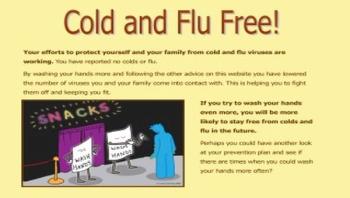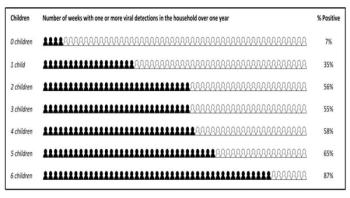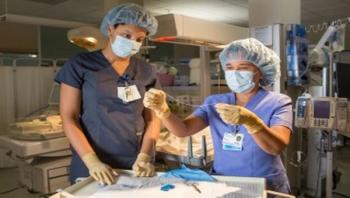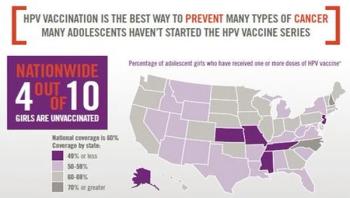
News




A web-based program to encourage more frequent handwashing reduces the risk of catching and passing on respiratory tract infections to other household members, a randomized trial of more than 16,000 UK households published in The Lancet has found. Users of the program, called PRIMIT, also reported fewer gastrointestinal infections, a lower demand for consultations with their doctors, and fewer antibiotic prescriptions.




Scientists from the Florida campus of the Scripps Research Institute (TSRI) have shown how aging cripples the production of new immune cells, decreasing the immune system’s response to vaccines and putting the elderly at risk of infection. The study goes on to show that antioxidants in the diet slow this damaging process.

National Institutes of Health (NIH) scientists report that a single dose of an experimental Ebola virus (EBOV) vaccine completely protects cynomolgus macaques against the current EBOV outbreak strain, EBOV-Makona, when given at least seven days before exposure, and partially protects them if given three days prior. The live-attenuated vaccine, VSV-EBOV, uses genetically engineered vesicular stomatitis virus (VSV) to carry an EBOV gene that has safely induced protective immunity in macaques. The experimental vaccine is currently undergoing testing in a global clinical trial in humans. VSV, an animal virus that primarily affects cattle, has been successfully tested as an experimental vaccine platform against several viruses.

Our bodies have 10 times the number of microbes than human cells. This set of bacteria is called microbiota. In some instances, bacterial pathogens can cause infectious diseases. However, these microorganisms can also protect us from certain diseases. Researchers from Inserm, Paris Descartes University and the CNRS (French National Centre for Scientific Research), through collaboration with teams from China and Sweden, have recently shown how microbiota protects against the development of type 1 diabetes. This research was published in the Immunity journal, on Aug. 4, 2015.


In mid-May, the Food and Drug Administration (FDA) convened a special meeting of the Gastroenterology-Urology Devices Panel of the Medical Devices Advisory Committee as a continuance of its examination of end-user challenges associated with reprocessing endoscopes including duodenoscopes. In previous communications, the FDA has expressed its concerns regarding the risks to patients if flexible endoscopes and their accessories are not cleaned properly and reprocessing guidelines not followed. The agency has also held several stakeholders' meetings and workshops, including with the Association for the Advancement of Medical Instrumentation (AAMI) that focused on factors affecting reprocessing of reusable medical devices and established clarion themes that began to outline key challenges and priority actions. In addition, in mid-March, the FDA issued its Final Guidance that addressed mandates for manufacturers relating to validation methods and labeling of medical devices that are reprocessed.

The Association for periOperative Registered Nurses (AORN) is currently updating its guideline on flexible endoscope reprocessing. ICT spoke with Sharon Van Wicklin, MSN, RN, CNOR, CRNFA(E) CPSN-R, PLNC, a perioperative nursing specialist for AORN who is responsible for this undertaking. She shares her thoughts about the opportunities and challenges associated with revising a guideline of this magnitude.




Lax state vaccination laws contribute to lower immunization rates and increased outbreaks of preventable diseases--like whooping cough and measles--according to a new study from the University of Georgia.




The neonatal intensive care unit (NICU) at MedStar Washington Hospital Center reached a remarkable safety milestone on July 31 -- three years with zero central line-associated bloodstream infections (CLABSIs) in its tiniest and most vulnerable babies. While three years CLABSI-free is extraordinary for any intensive care unit, what makes this accomplishment so remarkable is that these babies “are so small and fragile it makes it easier for infection to spread,” says Zacharia Cherian, MD, chairman of neonatology at MedStar Washington Hospital Center. “In addition, their immune systems are still immature, so fighting off infection is much more difficult than for a healthy baby.”


Diagnosis of deadly brain conditions could be helped by new research that shows how infectious proteins that cause the disease spread. The study reveals how the proteins -- called prions -- spread from the gut to the brain after a person or animal has eaten contaminated meat. Scientists say their findings could aid the earlier diagnosis of prion diseases -- which include variant Creutzfeldt-Jakob disease (vCJD) in people and bovine spongiform encephalopathy (BSE) in cows.

The need for infection prevention, as a multidisciplinary function, is a longstanding and widely acknowledged component of safe healthcare. Accreditation and regulatory standards specify that this function must be an organized program coordinated by an individual qualified to assure that the necessary assessments, priorities, key metrics are achieved. This individual must also assure that the program supports the provider’s mission, aligns with its safety culture, and is effectively and efficiently integrated into its operational and care delivery systems. Decades of pub-lished literature, conferences and online educational programs are available to support these requirements.

In the Oxford Dictionary “boundary” is defined as “a line that marks the limits of an area; a dividing line; a limit of a sphere of activity.” “Spanning” is defined as “extend across.” I’m sure we would all agree that organizational boundaries are common in healthcare, and transcending these boundaries presents endless opportunities to build powerful alliances to advance APIC’s mission to create a safer world through prevention of infection.



Q: Recently, we ran out of the single-use filters for our rigid containers. I learned the staff was making their own filters out of packaging material (see photo below). What advice can you provide when something like this happens?

May 2015 marked my 18th month of working as a sterile processing technician. A lot has happened during the past year and a half, so this is a good time to reflect on what I have learned about this important but behind-the-scenes profession in the healthcare industry.